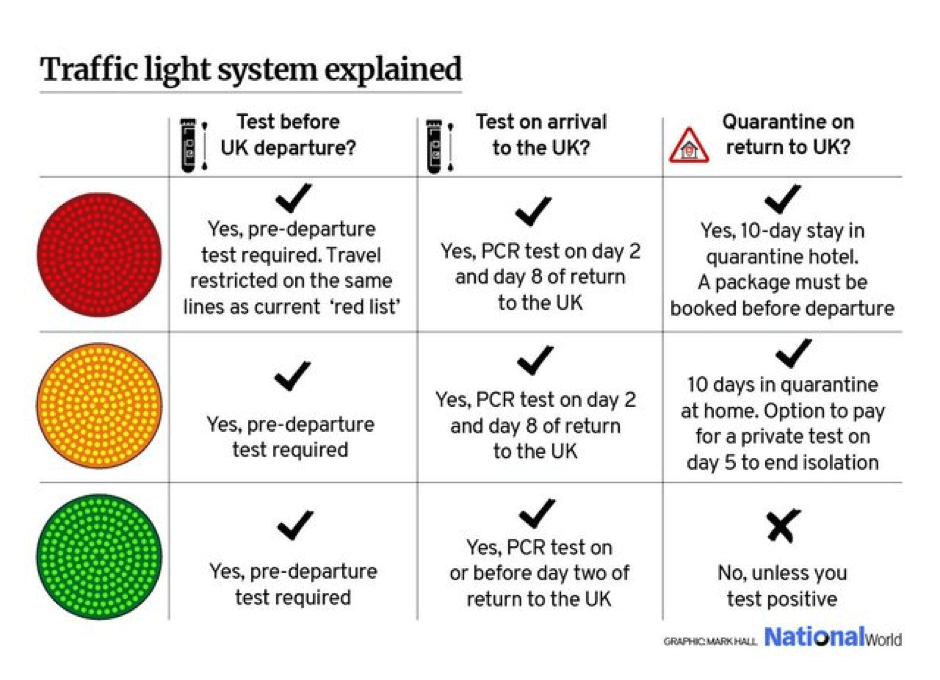As we are coming towards the end of a very wet and miserable May, most of us are yearning for some time away in the sunshine. The government has begun to relax the restrictions on international travel and has recently introduced guidance in the form of a traffic light system to help us navigate where we can and can’t go.
There has been criticism as to whether the rules are clear and the system remains under frequent review, causing concern and confusion for potential holiday makers. The full list of countries and their status as red, amber or green destinations is published at https://www.gov.uk/guidance/red-amber-and-green-list-rules-for-entering-england
The traffic light system sets out the parameters for COVID-testing and quarantine requirements for travel to each of the countries listed as red, amber and green but there is still confusion over what this actually means, particularly for people making holiday plans.

What should Employers know about the traffic light system?
Employers need to be aware of the status of the countries their staff are planning to travel to if they are booking holidays abroad this summer.
So what if your employees decide that they wish to travel abroad to Portugal, Gibraltar or the Falkland Islands (?!) – all of which are currently on the green list – for their holiday this year?
Under the current rules, this should not be a problem as there is no requirement to quarantine upon their return, unless they test positive for Covid-19. For those who do, self-isolation rules would kick in, in which case the employee should follow the company absence reporting procedure.
For those considering visits to countries which have not yet received the green light, employers need to be clear on their absence management policies. Whilst it is not unlawful to travel to those countries on the red and amber lists, the government has advised that travel to these destinations for leisure purposes is not advised and 10 days of quarantine is required in all cases. As we have seen on the news though, this advice has failed to put off some UK nationals who are travelling on holiday to amber list countries anyway.
As an employer, it would be helpful to set out your expectations in a policy or a company update so that there is no ambiguity and staff are fully informed on company procedure if they are required to self-isolate after their holiday. This should include the employee advising that they have travelled abroad and where they have travelled, reporting their absence and how this will be recorded on their HR record, whether they will be paid during any period of quarantine and if not, whether they are able to take paid annual leave.
Should employees be paid whilst self-isolating?
It will depend on Company policy as to whether employers pay staff who are self-isolating. In most cases, if someone cannot return to work and can’t work from home, they are not entitled to be paid. If you have sent someone overseas for business and didn’t pay them for being in quarantine, they may decide to resign and you could potentially face a claim for constructive unfair dismissal, even if they can’t work from home when they get back to the UK.
It should be made clear that employees who cannot work from home and are required to self quarantine without Covid symptoms, are not entitled to Statutory Sick Pay. Depending on your company policy, employees could be permitted to use some of their annual leave entitlement to cover this time off, provided that the individual has enough annual leave left to cover the absence.
It is important to remember that all the current rules and regulations could change at any time, so ensuring you have effective communication with your employees is vital. If you need help with drafting policies relating to Covid-19 and travel, get in touch. Don’t forget, PSHR offers a FREE 30-minute consultation, just click here to arrange or call 01473 653000.





